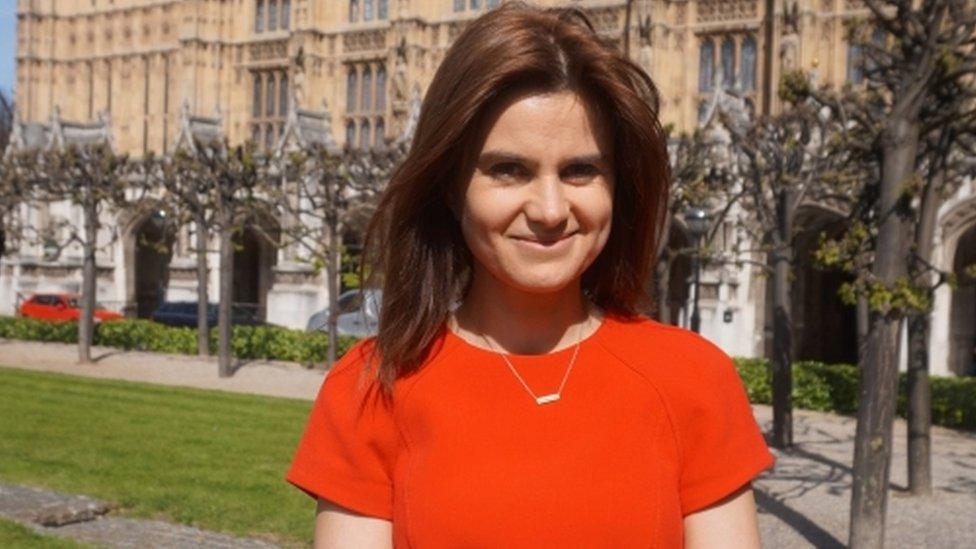Far-right group National Action to be banned under terror laws
- Published

A British neo-Nazi movement is to become the first far-right group to be banned under terrorism laws in the UK.
Home Secretary Amber Rudd said National Action was "a racist, anti-Semitic and homophobic organisation".
An order laid in Parliament to proscribe the group - making it a criminal offence to join or support it - is due to come into effect on Friday.
It will be the first time a group engaged in extreme right-wing activities has been proscribed.
Under the Terrorism Act 2000, the home secretary can proscribe an organisation if it is believed to be "concerned in terrorism".
The growing problem of far-right radicalisation
National Action describes itself as a "National Socialist youth organisation" and says its movement is aimed at the "broken right-wing".
Ms Rudd said the group had "no place" in Britain.
She said: "National Action is a racist, anti-Semitic and homophobic organisation which stirs up hatred, glorifies violence and promotes a vile ideology, and I will not stand for it."
Proscription makes it a criminal offence to belong to the organisation, arrange meetings in support of the group or wear clothing or carry articles in public which arouse reasonable suspicion.
Penalties for proscription offences can be a maximum of 10 years in prison and an unlimited fine.
There are currently 70 international organisations, external that are proscribed under the Terrorism Act 2000 - the majority of which are Islamist groups. A further 14 organisations in Northern Ireland were proscribed under previous legislation.

Following the murder of Labour MP Jo Cox, a branch of the group tweeted praise for her killer, Thomas Mair.
Mair was jailed for life last month after being found guilty of murder.
The home office said it took the decision to proscribe National Action before Mair's trial.
On its website, National Action said it carries out "demonstrations, publicity stunts, and other activities" to spread the message of "National Socialism".
'Unashamedly neo-Nazi'
Gideon Falter, chairman of the Campaign Against anti-Semitism, said: "This decision by the home secretary is something we have long called for and sends a strong message that the far-right is in the government's sights and will not be permitted to continue its incitement and violence."
About a quarter of the cases being handled by the government's counter-extremism programme are for right-wing radicalisation.
Prof Matthew Feldman, the co-director for the centre for fascist, anti-fascist and post-fascist studies at Teesside University said National Action had a small core of between 100-200 activists.
"At demonstrations, there may only be a couple dozen people. But they are unashamedly neo-Nazi," he told the BBC.
"There's a growing appreciation that the far-right has not had the same attention that jihadi Islamist groups have had in the last 10 years.
"Things are turning and there's an acceptance that the extreme right poses a threat."
Part of this threat, Prof Feldman explained, was against those left-wing journalists or activists - like Jo Cox - "being seen as the midwives of the Islamisation of Britain".
Other campaigners have called for action to be taken against far-right groups with bigger followings.
Sabby Dhalu, from Unite Against Fascism said: "The government must also take more seriously groups on the far-right in Britain with a bigger following."
Ms Dhalu said other far-right organisations - such as Britain First - should also be investigated.
The order will be debated in parliament later this week, before becoming operationally effective on Friday.